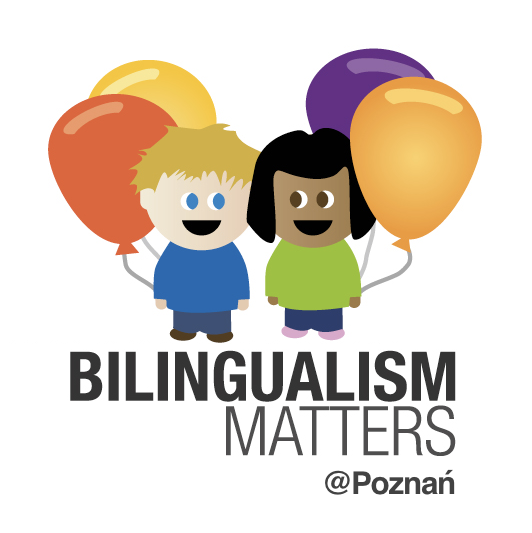Bilingualism Matters @Poznań

A branch of an international network Bilingualism Matters
Bilingualism Matters @Poznań is a research and information center operating at the Faculty of English at Adam Mickiewicz University in Poznań, focused on multilingualism and language learning.
We are one of 35 international branches of the Bilingualism Matters Centre based at the University of Edinburgh in the United Kingdom.
The Poznań branch was launched in 2018.
The center’s goal is to disseminate research findings about multilingualism and multilingual education to the general public and to raise awareness among parents, teachers, and the public sector in this area. The team members have been engaged for many years in interdisciplinary research on bilingualism and multilingualism and in promoting their findings both locally and internationally. Furthermore, we aim to promote knowledge about linguistic diversity in Poland and beyond, and to support the maintenance of minority languages. Our activities are designed to support informed decisions regarding language use and language learning, as well as to advocate for policies that support these practices in education.
Bilingualism Matters @Poznań collaborates with parents, teachers, policymakers, and employers. We especially reach out to parents who wish to raise their children bilingually; to teachers and school principals running bilingual programs; to municipal and educational authorities; and to the general public.
The offer of Bilingualism Matters @Poznań includes:
- Organizing training sessions and workshops on bi/multilingualism and language learning,
- Supporting projects related to the implementation of language teaching,
- Raising awareness among teachers, parents, and children about the benefits of bilingualism,
- Answering questions about raising bilingual children,
- Providing access to information and resources through our website and social media channels.
Research has shown that bilingualism is beneficial for children’s development and their future. Children exposed to different languages become more aware of different cultures, people, and perspectives. The ability to communicate in multiple languages enhances empathy, supports cognitive development and concentration, and facilitates learning additional languages. Recent studies also suggest that learning another language may have lifelong benefits, such as delaying the onset of dementia symptoms and slowing cognitive aging. This applies even to people who begin learning a second language later in life. Bilingualism Matters @Poznań offers advice on how to best take advantage of the unique opportunity of growing up in a multilingual environment.
Aims:
- We do research and disseminate knowledge about bi/multilingualism and multiculturalism.
- We increase general awareness about the benefits and challenges posed by bi/multilingualism.
- We encourage policies and practices that promote linguistic diversity and bi/multilingual schooling.
Visit http://bm.amu.edu.pl/index_en.html for more information on bilingualism/multilingualism and the research we conduct in this field.
Recent projects carried out by BM members
The FOSTERLANG Project HORIZON-CL2-2024-HERITAGE-01-05 BM Team member: Michael Hornsby | Aims to transform the protection and promotion of minoritised languages in Europe, ensuring their stable and equitable coexistence with dominant, national, and international languages. |
ADIM & CLIMAD National Science Centre & Norway Grants BM Team members: Magdalena Wrembel, Katarzyna Dziubalska-Kołaczyk, Anna Balas, Sylwiusz Żychliński | Across-domain investigations in multilingualism: Modeling L3 acquisition in diverse settings. Crosslinguistic influence in multilingualism across domains: Phonology and syntax. https://climad.web.amu.edu.pl |
The TEAM Project Erasmus + BM Team members: Anna Ewert, Aleksandra Wach, Michael Hornsby, Victoria Kishchak, Grzegorz Krynicki | The major project output is a resource of materials to be used for teacher-training, which has also been made available to the public. |
SPEAK YOUR HEART OUT: Neurophysiological correlates of emotional speech production in bilingualism National Science Centre BM Team members: Rafał Jończyk | Investigation of the role of emotion in speech production, the underlying brain mechanisms involved in emotional word and sentence production, and the modulation of these processes by the first and second language. |
STEROPUS National Science Centre BM Team members: Katarzyna Jankowiak | The project aims to thoroughly examine the automaticity of gender stereotype activation in the native and foreign language. |
ME-CO PL funded by the AMU School of Languages and Literatures. BM TEAM members: Agnieszka Lijewska | Polish contribution to the Multilingual Eye-tracking Corpus (MECO) - an international corpus comprising eye movement data collected during text reading in 28 languages, both in the participants' first language and in English as their second language. |
BM@Poznań Team
Head:
prof. UAM dr hab. Magdalena Wrembel
Board:
prof. dr hab. Katarzyna Dziubalska-Kołaczyk (Dyrektorka założycielka)
prof. UAM dr hab. Anna Balas
dr Katarzyna Jankowiak
Team:
dr Anna Basińska
dr Anna Broszkiewicz
prof. UAM dr hab. Anna Ewert
prof. UAM dr hab. Michael Hornsby
prof. UAM dr hab. Aleksandra Wach
prof. UAM dr hab. Katarzyna Bromberek-Dyzman
prof. UAM dr hab. Rafał Witkowski
dr Agnieszka Lijewska
dr Rafał Jończyk
dr Karolina Rataj
dr Tristan Czarnecki-Verner
dr Grzegorz Krynicki
dr Iga Krzysik
mgr Halina Lewandowska
mgr Zuzanna Cal
mgr Victoria Kishchak
Contact
Address:
Bilingualism Matters
Faculty of English, AMU
ul. Grunwaldzka 6, Poznań
E-mail: bm@wa.amu.edu.pl; magdala@amu.edu.pl; bilingualismmatters@amu.edu.pl
Website (PL): http://bm.amu.edu.pl
Website (EN): http://bm.amu.edu.pl/index_en.html
Social media:
www.facebook.com/bmpoznan
www.instagram.com/bilingualismmatterspoznan
www.x.com/bmpoznan1